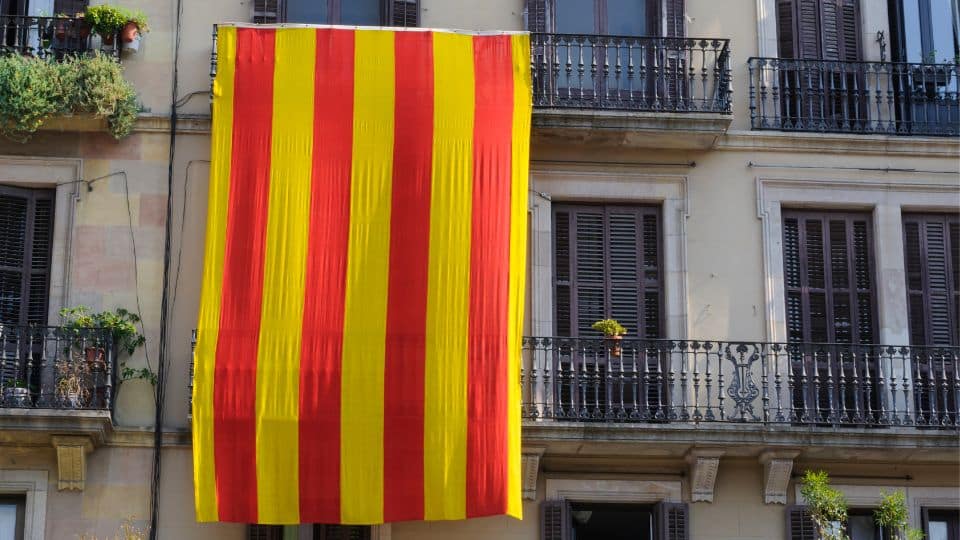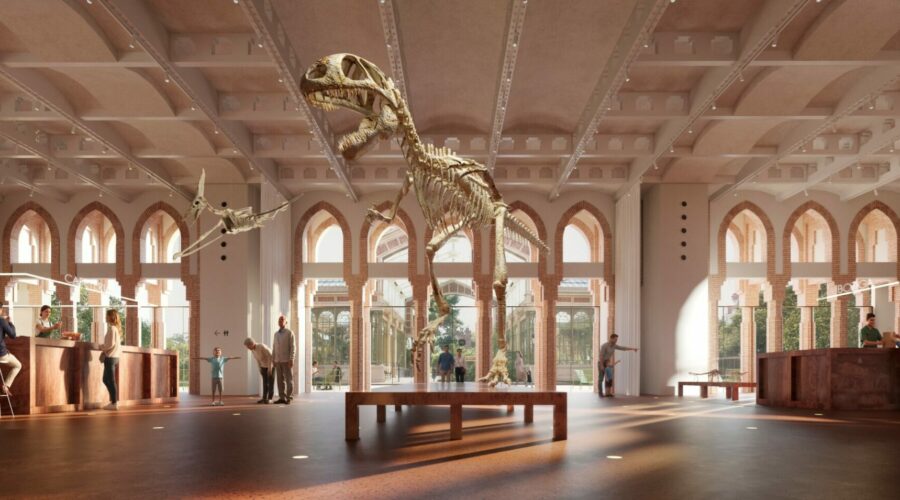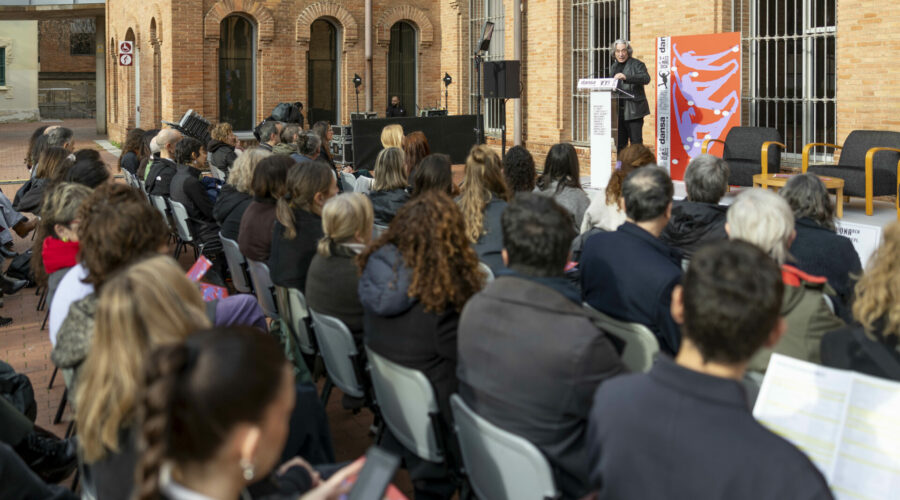The relationship between Catalan and Valencian has been a topic of discussion for decades, and this debate continues to generate controversy. The dilemma of whether “Catalan is spoken in Valencia or Valencian in Catalonia” has given rise to historical, political and cultural interpretations. While some defend the linguistic unity between the two languages, others, like the author of the text in question, claim that Catalan is actually a dialect of Valencian-Occitan. But, what is true in these statements?
A question of identity and politics
The author of the text defends the thesis that Valencian is spoken in Catalonia, basing his argument on the history and origins of the language. According to this view, Catalan would be a dialect of a larger language, Valencian-Occitan, which includes other variants such as Limousin, Gascon and Provençal. The text argues that during the Reconquest, the Provençal language was brought to Catalonia by the Occitanians and, subsequently, Limousin was introduced into Valencia after the battle of Muret in 1213, which would have laid the foundations for the Valencian language. Furthermore, it is argued that the Valencian Golden Age consolidated the language, making Valencia an influential cultural and linguistic center throughout the Crown of Aragon, and that even Dante Alighieri considered writing his “Divine Comedy” in Valencian. This account highlights the importance of Valencian in history, but also denounces what the author describes as linguistic and political manipulation by Catalonia in later centuries.
The creation of modern Catalan
The text states that in the 19th century, the Catalan bourgeoisie Frenchified its language, distancing it from Valencian. Mention is made of Prat de la Riba, who in 1906 commissioned Pompey Fabra to create the Catalan grammar, which, according to the author, was an invention that amalgamated archaisms, Valencianisms and Gallicisms. The publication of the first Catalan grammar in 1912 marked, in this view, the beginning of an attempt to impose Catalan as the official language in the Valencian- and Balearic-speaking regions. The author criticizes this process, calling it an attempt at “imperialist absorption” by Catalanism, with the aim of creating an entity called the Catalan Countries that would include Valencia and the Balearic Islands. For the author, this is a project that has both political and economic motivations, as these regions concentrate 75% of Spain’s wealth.
Is Catalan a dialect of Valencian?
From a linguistic point of view, most experts agree that both Catalan and Valencian are variants of the same language, with dialectal differences but with a common base. This language is known as Catalan-Valencian-Balearic, according to the Institut d’Estudis Catalans and the Acadèmia Valenciana de la Llengua, the two main normative institutions in their respective regions. These institutions have worked together to establish a grammar and a standard that reflects the particularities of each variant without disuniting them. It is important to note that, although the debate on the differences and similarities between Catalan and Valencian has been very present in politics, especially in the Comunitat Valenciana, the current academic consensus recognizes that both forms of speech belong to the same language. However, this does not deny the cultural and regional differences that each community has developed over time.
The politics behind the language
Language is a powerful tool in the construction of national and regional identities, and this is reflected in the Catalan-Valencian debate. Throughout history, both Catalonia and Valencia have used language as a symbol of identity. The author of the text criticizes what he perceives as an attempt by Catalonia to appropriate Valencian history and language to create a broader identity, which would include Valencia and the Balearic Islands in a Catalan Countries project. This type of debate is not unique to Spain. In many parts of the world, language and politics are intrinsically linked. Nationalist or regionalist movements often use language as a symbol of resistance or differentiation from other groups. In this case, the author of the text opposes what he considers a Catalanist narrative that attempts to subsume Valencian identity under the umbrella of a broader Catalan identity.
A debate full of historical nuances
The debate on whether Catalan is spoken in Valencia or whether Valencian is spoken in Catalonia is full of historical, linguistic and political nuances. The author of the text defends a view in which Catalan is a dialect of Valencian, while current linguistic studies see both variants as part of the same language, albeit with important regional differences. Such debates tend to arise in contexts where regional identity is strong and where language plays a crucial role in politics and culture. Ultimately, beyond the differences, both Catalan and Valencian bear witness to a rich shared history between two communities that have managed to keep their language alive over the centuries, despite political and social challenges.
The debate on linguistic unity: Are Valencian, Balearic and Catalan the same language?
The debate on the unity of the language shared by Catalonia, the Valencian Community, the Balearic Islands and Andorra continues to be a hot topic in linguistic and political circles. Pan-Catalanists, who advocate the creation of the Catalan Countries (a cultural and political entity that would encompass these territories), base much of their arguments on the linguistic unity of these regions. They argue that Catalan, Valencian and Balearic are variations of the same language, Catalan, which would give rise to a shared identity. However, although it is undeniable that these languages share a common origin in Vulgar Latin, the debate on whether Catalan is the mother tongue of Valencian and Balearic is much more complex.
Valencian: a language with its own roots
In the Kingdom of Valencia, as early as the 12th century, a Romance language, derived from Latin, was used as a common language among its inhabitants. This fact is documented in Valencian history, and one of the clearest examples is that King James I himself ordered that the Fueros of the Kingdom of Valencia be written in this language. This shows that the use of an autochthonous language in Valencia is not a modern invention to deny the linguistic unity, as it is sometimes argued, but a historical reality. One of the first references to Valencian as a language appears in documents from 1343, during a judicial process in Mallorca, in which it is mentioned that the mother of the accused, called Sibila and native of Orihuela, spoke in “valencianesch”. Moreover, ten years earlier, a disciple of the famous philosopher Ramón Llull already referred to the “lingua valentina” in a commentary in Latin, which reinforces the idea that Valencian was identified as a distinct language.
Is Catalan the mother of Valencian and Balearic?
The pan-Catalanist thesis argues that Catalan is the language of origin of the variants spoken in the Valencian Community and the Balearic Islands. However, although it is true that both Valencian and Balearic share a common origin in Vulgar Latin, there are historical arguments that indicate that these languages developed with their own particularities. The idea that Catalan is the “mother” of these languages is a view that responds, to a large extent, to political interests rather than to an immutable linguistic reality. The denomination of the language spoken in Valencia as “Valencian” is not a modern phenomenon, as some pro-independence currents that try to unify the languages under the umbrella of Catalan maintain. The Valencian language was already recognized as such in official documents as early as the 14th century, which shows that the Valencian linguistic identity has been part of the cultural fabric of the region for centuries.
A complex linguistic history
The debate on the origin and nature of Valencian, Catalan and Balearic has been the cause of ideological confrontations that have lasted for decades. The linguistic policy of some sovereigntist sectors in Catalonia has tried to impose the idea that Catalan is the mother tongue of all these variants, which has generated rejection in some sectors of the Valencian Community and the Balearic Islands. However, the historical facts seem to tell a more complex story. Throughout the centuries, Valencian has been consolidated as a language with its own cultural and literary background, and the existence of documents that explicitly mention it since ancient times reinforces this position. The fact that James I promoted the use of Valencian in the Fueros and that the language was used in a judicial process in Mallorca in the 14th century indicates that Valencian had its own recognition, independently of Catalan.
Linguistic identity: an issue beyond language
This debate is not only about linguistics, but also about cultural and political identity. For many Valencians and Balearic Islanders, language is a symbol of their cultural autonomy, and the idea that Catalan is the mother tongue can be perceived as a threat to that identity. At the same time, advocates of pan-Catalanism see linguistic unity as a way to strengthen ties between these territories and consolidate a shared identity that transcends current political boundaries. The challenge is to recognize the particularities of each linguistic variant without imposing a narrative that erases the historical and cultural differences that have characterized these regions. Valencian, Catalan and Balearic have a common origin, but they have also evolved independently, shaped by the historical and social circumstances of their respective territories.
A debate of great importance in the political and cultural spheres.
The debate on the relationship between Catalan, Valencian and Balearic continues to be a topic of great importance in the political and cultural spheres. Although all these languages come from the same common origin, Vulgar Latin, the development and evolution of each has been different. The denomination of Valencian as a distinct language already existed in the 14th century, which contradicts the thesis that tries to present it simply as a variant of Catalan. In short, this debate is not only linguistic, but also a matter of identity. Language is a fundamental part of the culture and history of peoples, and both Valencian and Balearic have a history of their own that deserves to be recognized and respected, regardless of the political visions that seek to unify these territories under a single linguistic identity.




